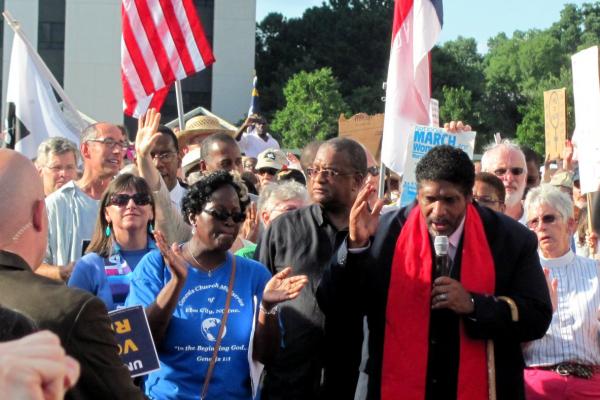Mar 30, 2016
The leader of the “Moral Mondays” movement and a prominent New York minister are joining forces for a 15-state “moral revolution” tour to counter the nation’s conservative voices.
“Way too much of our national discourse has been poisoned by hateful language and policies,” said the Rev. William J. Barber II, who brought thousands to weekly protests at the North Carolina General Assembly, in an announcement.
Read the Full Article

Already a subscriber? Login
